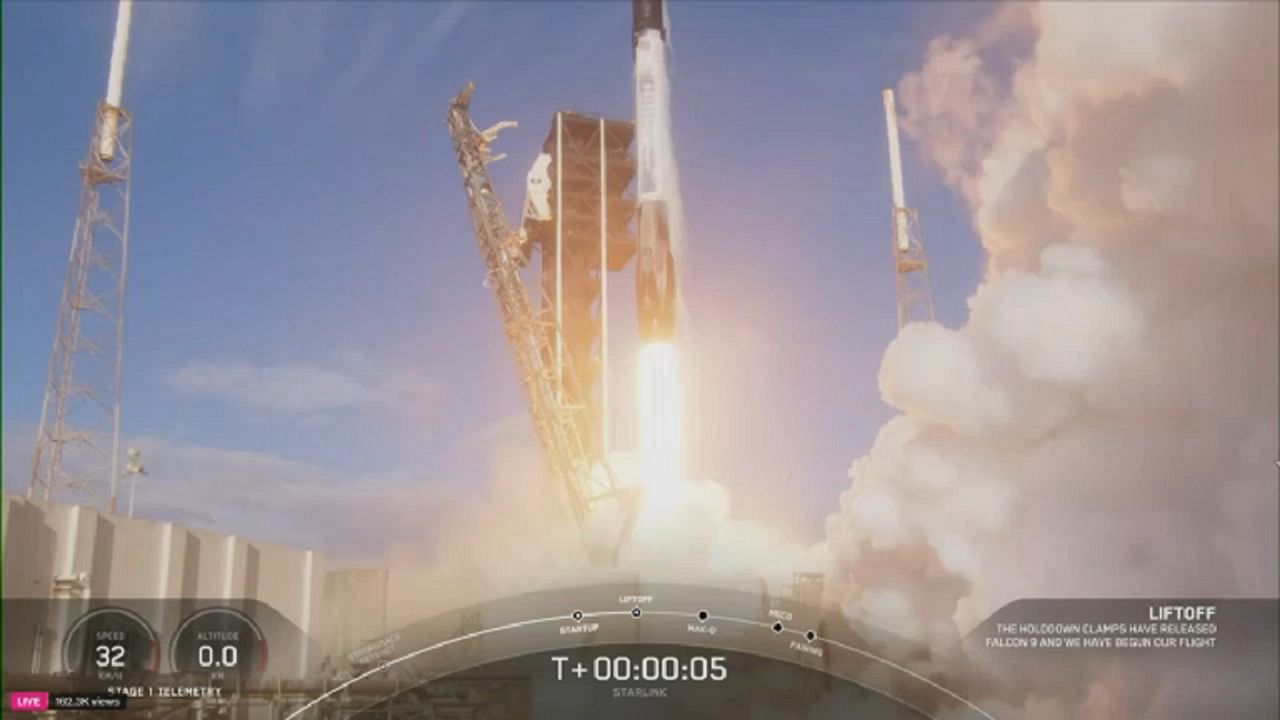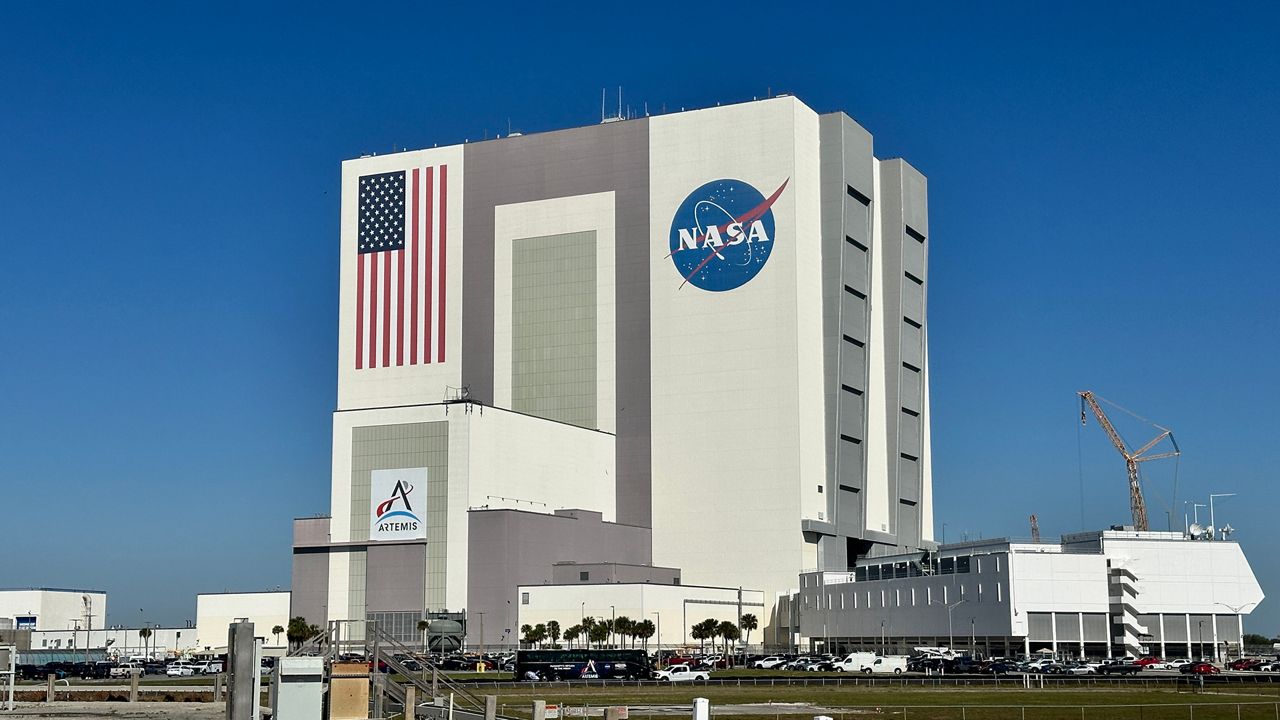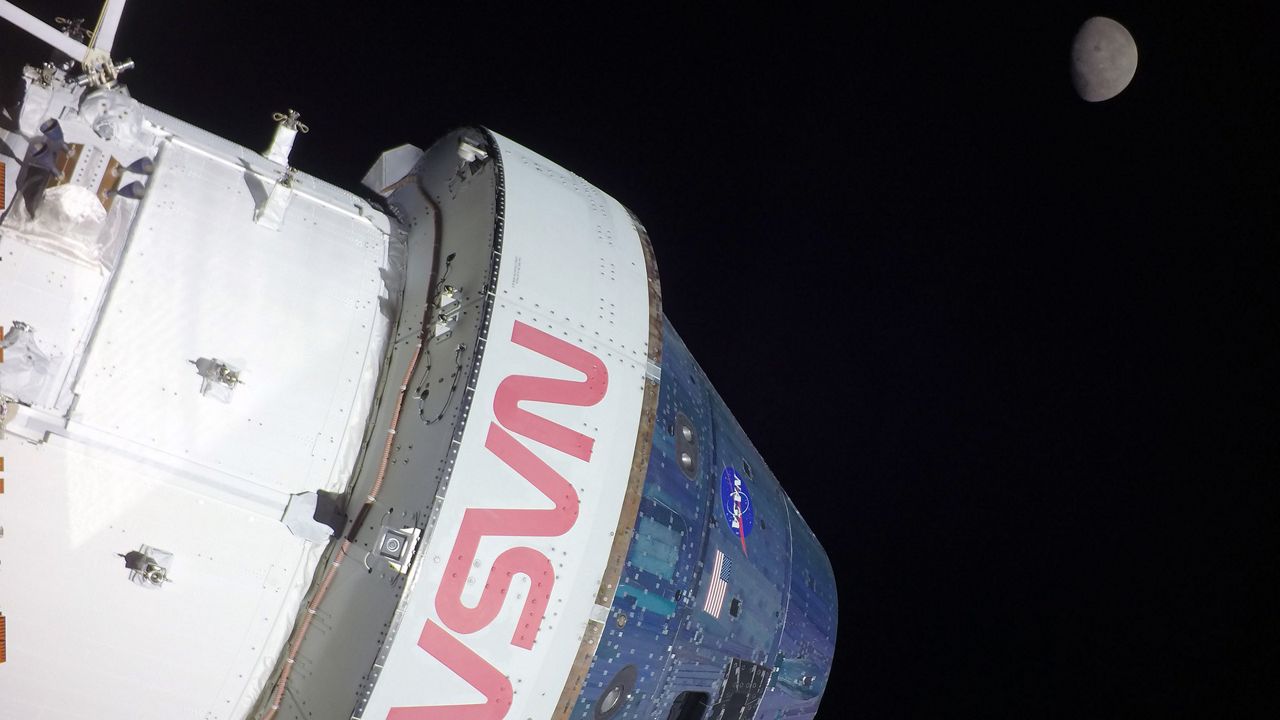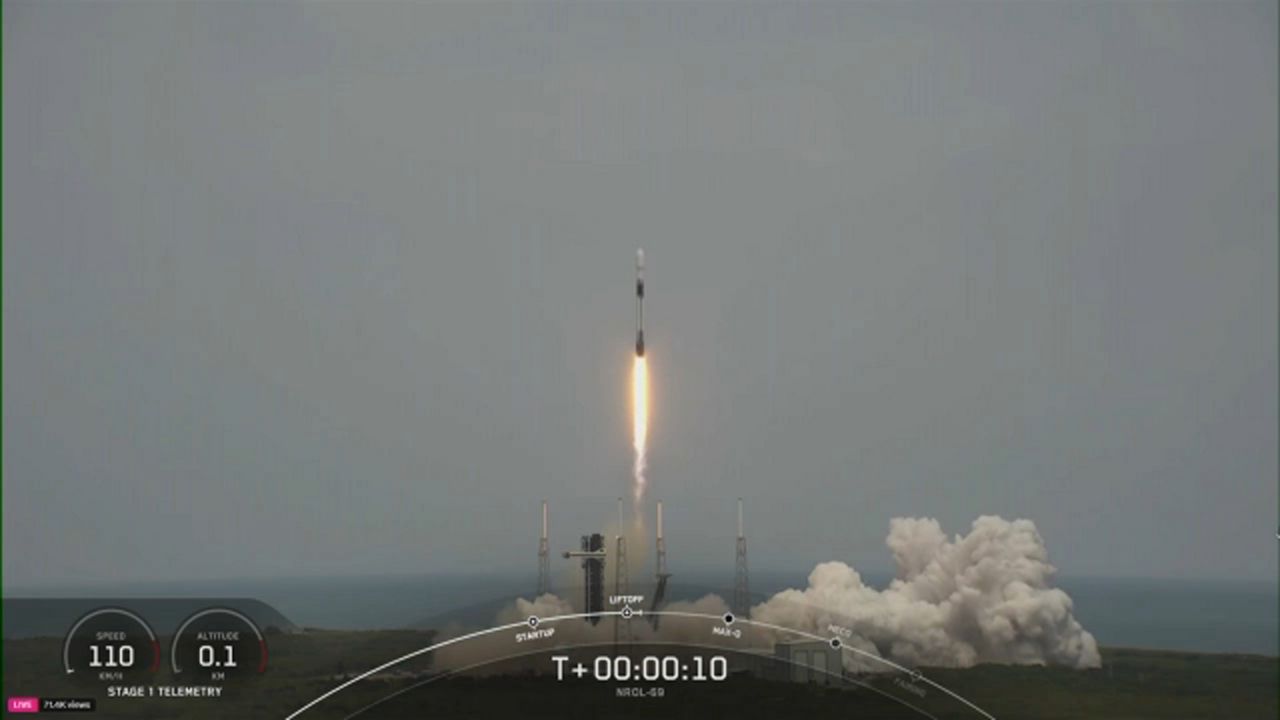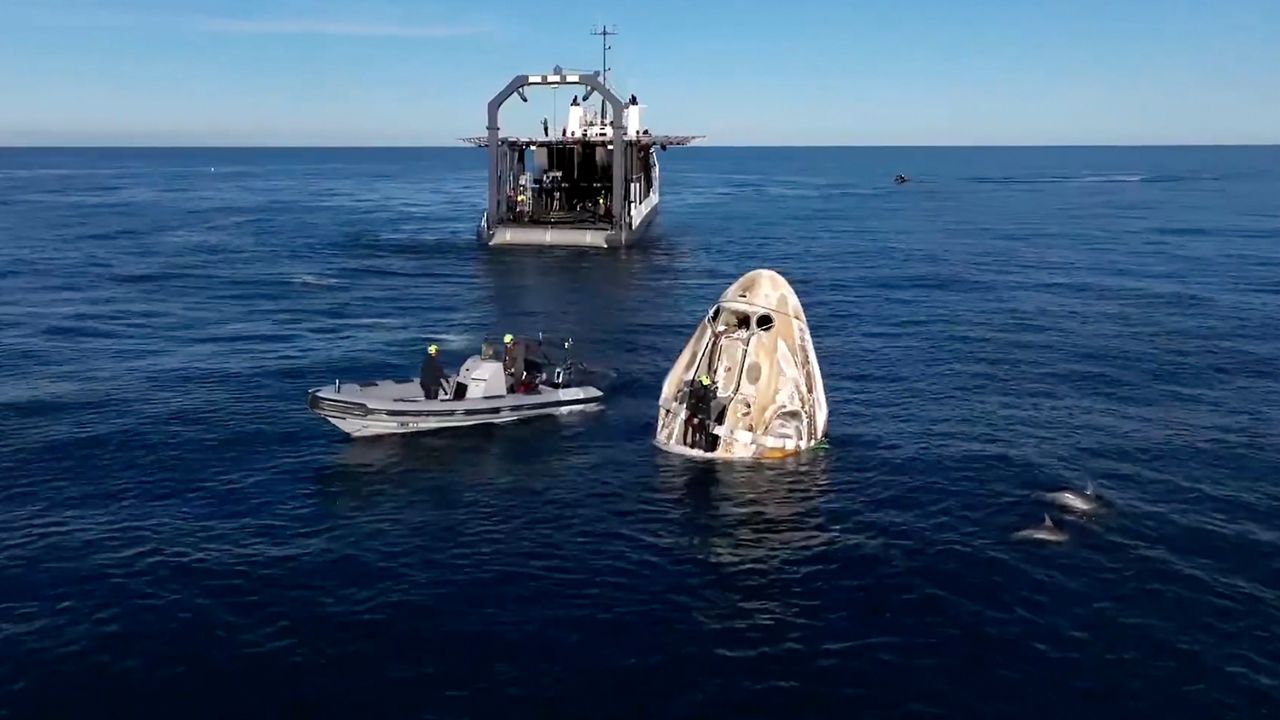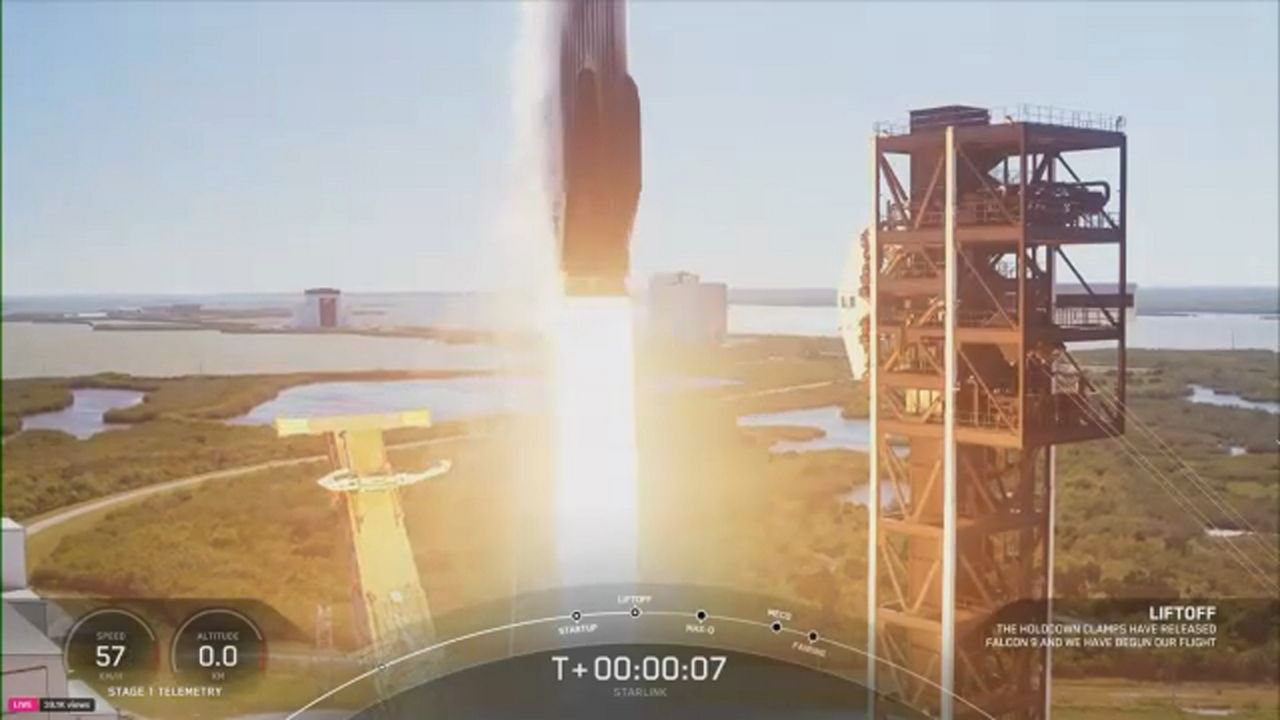CAPE CANAVERAL SPACE FORCE STATION — After a few delays, SpaceX was able to launch two dozen Starlink satellites during a morning Thursday launch.
What You Need To Know
- The California-based company’s Falcon 9 rocket sent up Starlink 6-68 mission
- The rocket left from Space Launch Complex 40 at Cape Canaveral Space Force Station
The California-based company’s Falcon 9 rocket sent up Starlink 6-68 mission from Space Launch Complex 40 at Cape Canaveral Space Force Station, stated SpaceX.
The launch window opened at 8:21 a.m. ET, with a closing at 9:33 a.m. ET.
Originally, SpaceX stated the launch would happen at 5:45 a.m. ET and it pushed the time back to 7:53 a.m. ET; it gave no word as to why the launch was pushed back.
The forecast looked good, with the 45th Weather Squadron giving a 85% chance of good liftoff conditions. The only things of concern were the thick cloud layers and cumulus cloud rules.
Find out more about the weather criteria for a Falcon 9 launch.
If the launch was scrubbed, the next attempt would have been Friday at 5:17 a.m. ET.
Going up
This is the 18th mission for the Falcon 9's first-stage booster B1076. It has had 17 missions before this launch:
- CRS-26
- OneWeb Flight 16
- Intelsat IS-40e
- Starlink Group 6-1 mission
- Starlink Group 6-3 mission
- Starlink Group 6-6 mission
- Starlink Group 6-14 mission
- Starlink Group 6-21 mission
- SES O3B-mPOWER
- Ovzon-3
- Starlink Group 6-40 mission
- Eutelsat 36D
- Starlink 6-54
- Starlink Group 6-64 mission
- Turksat 6A
- Maxar 2 mission
- Starlink 8-19 mission
After the stage separation, the first-stage rocket landed on the droneship Just Read the Instructions that will be in the Atlantic Ocean.
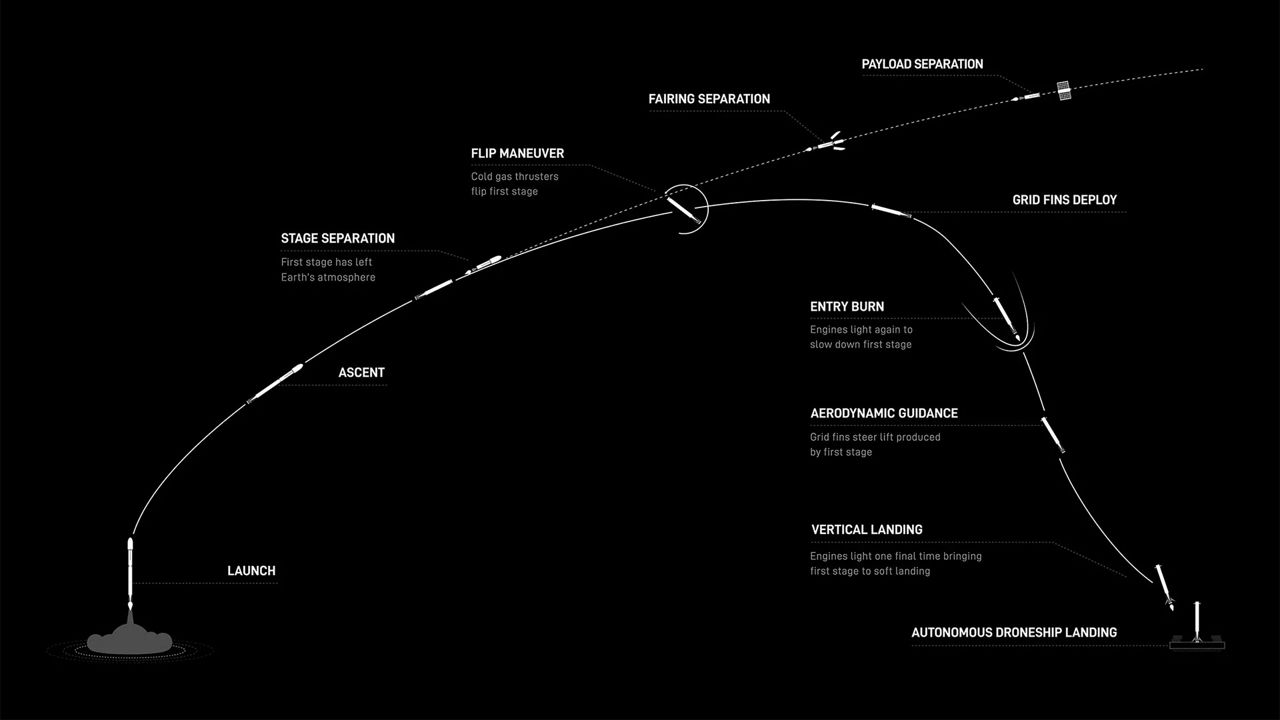
About the mission
The 24 satellites from the Starlink company, owned by SpaceX, will be going to low-Earth orbit, connecting to the more than 6,000 already there.
After they have been deployed and in orbit, they will deliver internet service to many parts of the globe.
Dr. Jonathan McDowell, of Harvard-Smithsonian Center for Astrophysics, has been keeping track of Starlink satellites.
Before this launch, McDowell recorded the following:
- 6,613 are in orbit
- 6,014 are in operational orbit




